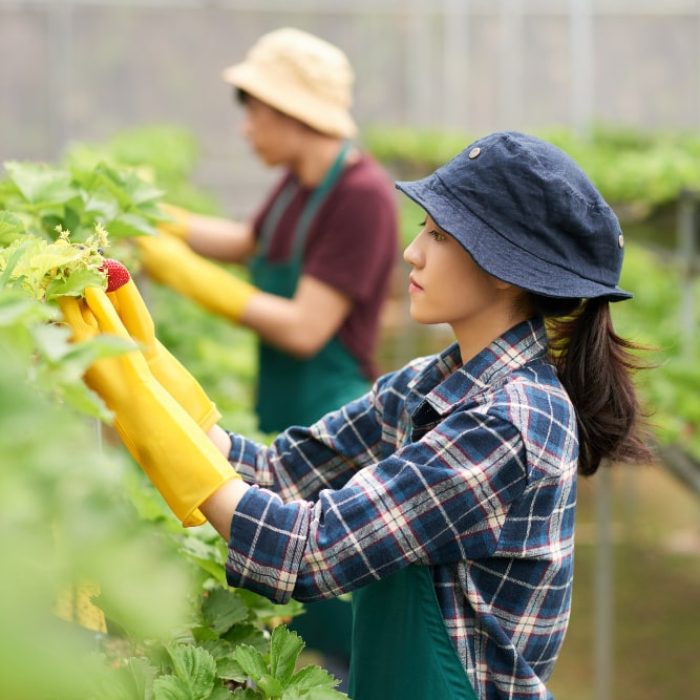About Us
Most Farmers struggle to sell directly to End- Users, Erde Agro Ecosystem brings together the farmers, best practi
ces, and end-users to share value, increase transparency, and build lasting trust.
Our Company was establish in January, 2022 with an ambitious aim of converting farms from chemicals base to organic farming while, providing better prices and infrastructure at lower risks.
We started our organic farming activities in our associate company i.e. Erde Agrotech LLP, in 2019 with ~160 acres at Shri Radhanpur Khoda Dhor Panjarapole Sanstha, Godhana village, Sami Taluka, Dist. Patan, Gujarat. This 219 years old trust is spread across ~1200 acres land and
more than 3200 cattle.

OTHER BENEFITS TO COMMERCIAL BUYERS
- Most important of our business model is “Supply Securities”.
- How Supply Securities Works? Normal practise is single crop develops on large scale in specific area/cluster. That’s why its creates short of the monopoly of that area crops like “Guntur for Chili”, “Unjha for Cumin”, etc. That’s why the rate is also uncertain due to the market syndications. We are helping our buyer’s for “Geographically Diversification”, which means crops will be develop in different states and even different locations of the state as per the suitable conditions. If any specification location effected due to the natural calamities, It doesn’t means that other areas are affected. Which help secured minimum threshold supply and not suffer with the heavy market rate fluctuation, shortage of materials & compromising quality standard.
- Helps buyers to develop the specific varieties as required with POP and maintain the quality standards.
- APMC Traders/ Wholesalers/ Brokers are not trustworthy for the constant supply & quality standards. They offer as per availabilities & free to sell anyone who can offer the better rate.
- Geo tagging also helps the buyers to monitoring their crops.
- We also started to develop the contract farming models in African countries like Ghana, Kenya, etc., with support of our buyer’s.
Present Status by Febuary 2023
CURRENT PROJECTS
- Project advisorof Dhanwantri Bioremedies Pvt.Ltd. (SteviaSugarExtraction Unitwith500acresof ContractFarming)
- Project AdvisorOf Viva FarmatGhana (Africa)Develop 1000 acres farming in1st phase & develop 10,000 acres in 3 years
- Already signed contract farming agreement with Griffith Foods 250 acres with special variety of Chilies and Omni Actives – Paprika project 100 acres
- Other reputed buyers like ITC, Olam, Amul, etc
- Total Contract around 22,500 acres plus in current calendar year. Next year, received target from our buyers around 1 Million Hector in Maharashtra & Gujarat State.
- Received LOI from SMART (State of Maharashtra Agribusiness & Rural Transformation – Agricultural Department, Ministry of Agricultural) to support their around 450 FPO/FPC farmers. Expected to signing the MOU by end of March, 2023
- Under process of MOU with Amul Federation dairy i.e. Dudhsagar dairy (Sagar & Amul) in Gujarat for their farmers around 600,000
- Current Geographies to be Maharashtra, Gujarat, Goa, Telangana and Andhra Pradesh
- Our current Crops with assured quality standard like IPM, Residues Free & Organic: Chili (Red dry), Cumin, Fenugreeks, Coriander seeds, Turmeric (dry), Ginger (dry), Chickpeas, Red Grams, Green Grams, Soyabeans, Wheat, etc.
- Started Pilot project of 1000 acres in Ghana, Kenya, Tanzania (Africa) for Crops like Soyabeans, Maize, etc.
present SCENARIO agricultural market
- In India Agricultural sector GDP (2020-2021) share : Constant 16.38% & Current 20.19%
- Agricultural Market value (Rupees in Crore) : Constant 2,040,079 & Current 3,616,523
Global Report
- Over 40% of global land area occupies by agricultural
- 52% of agricultural land is degraded
- 29.3 % of India’s total geographical area degraded i.e. 96.4 Mha (Million Hectares)
- India & 195 Nation join hands to fight drought to restore 1 Billion hectares of degraded land by 2030. India also planning to restore degraded land 25 Mha by 2030
- Otherwise degradation of lands & food crises threatens roughly half of global GDP ($44 trillion)
